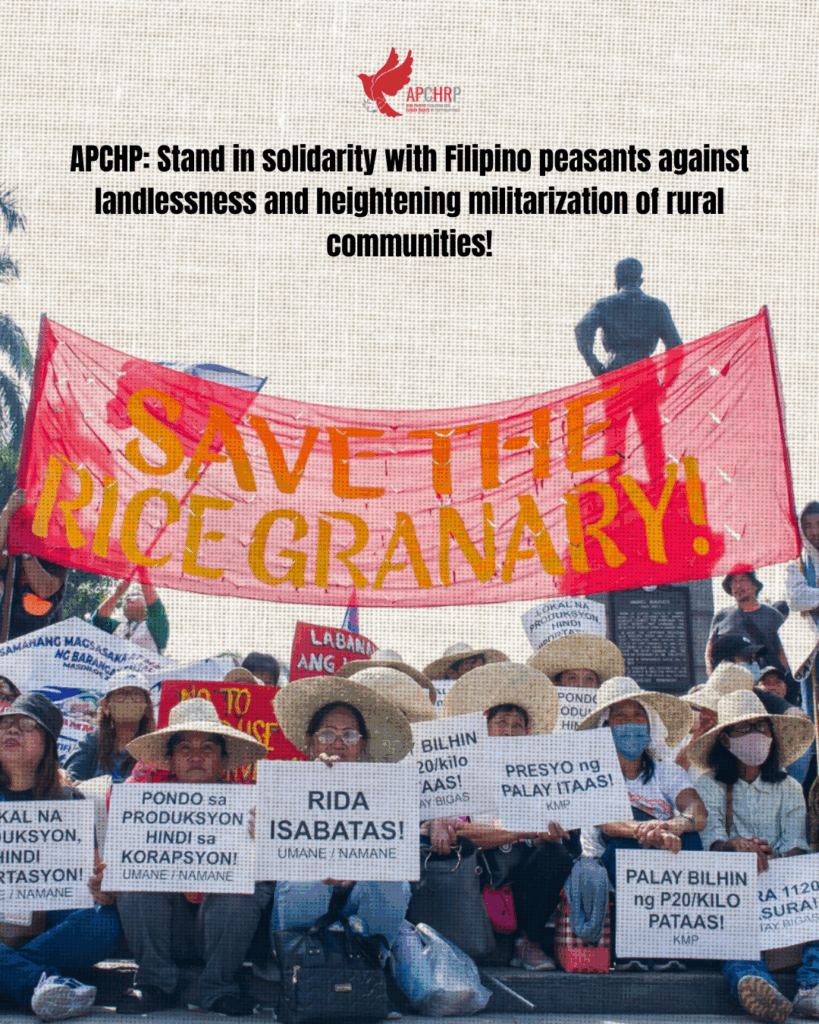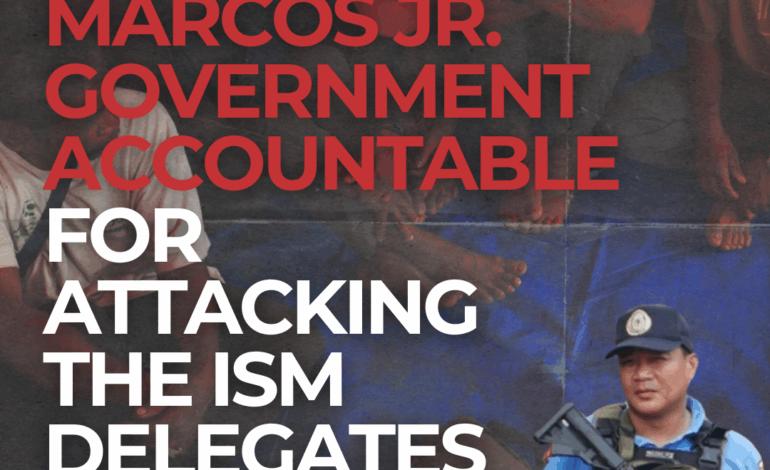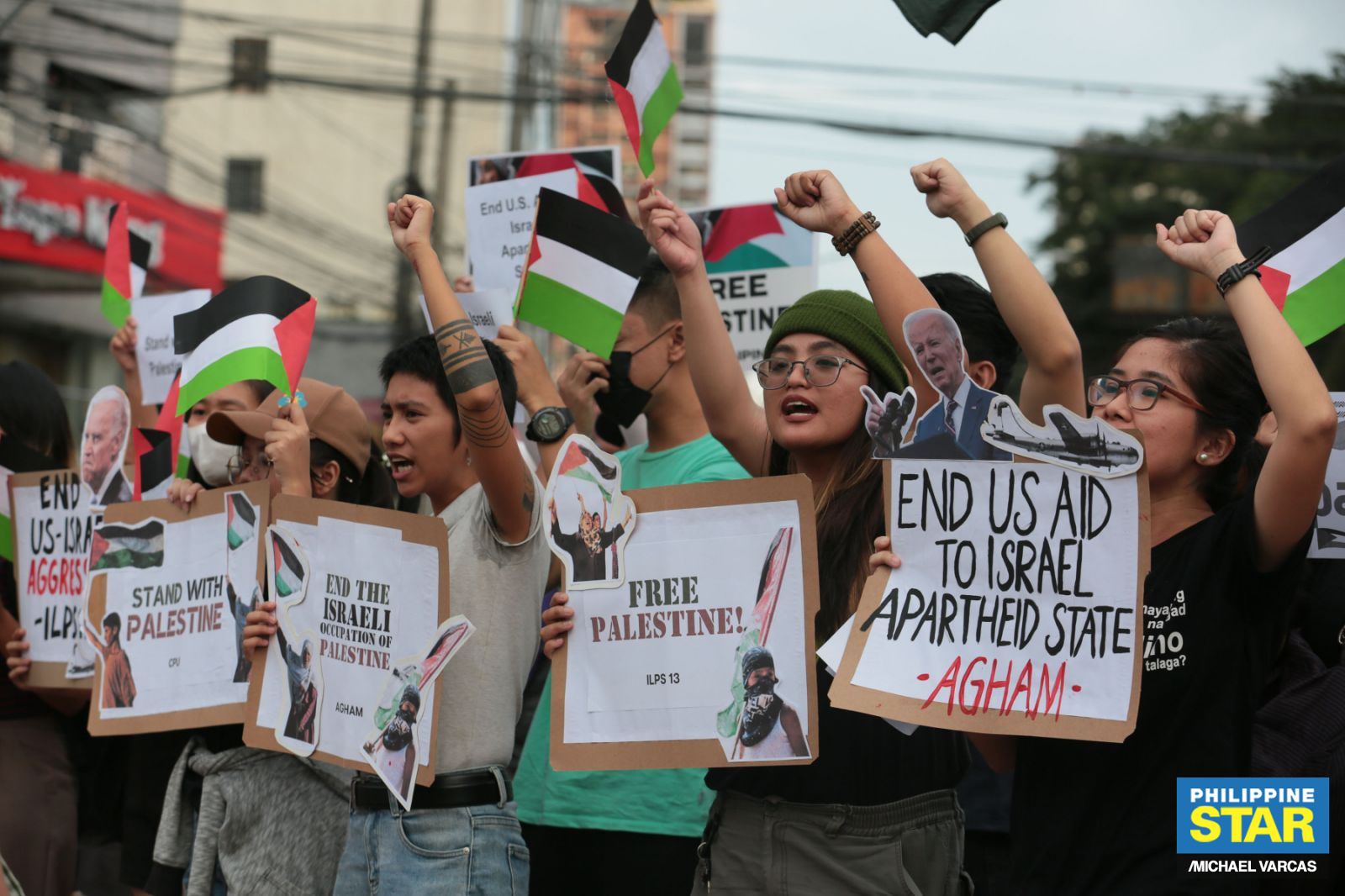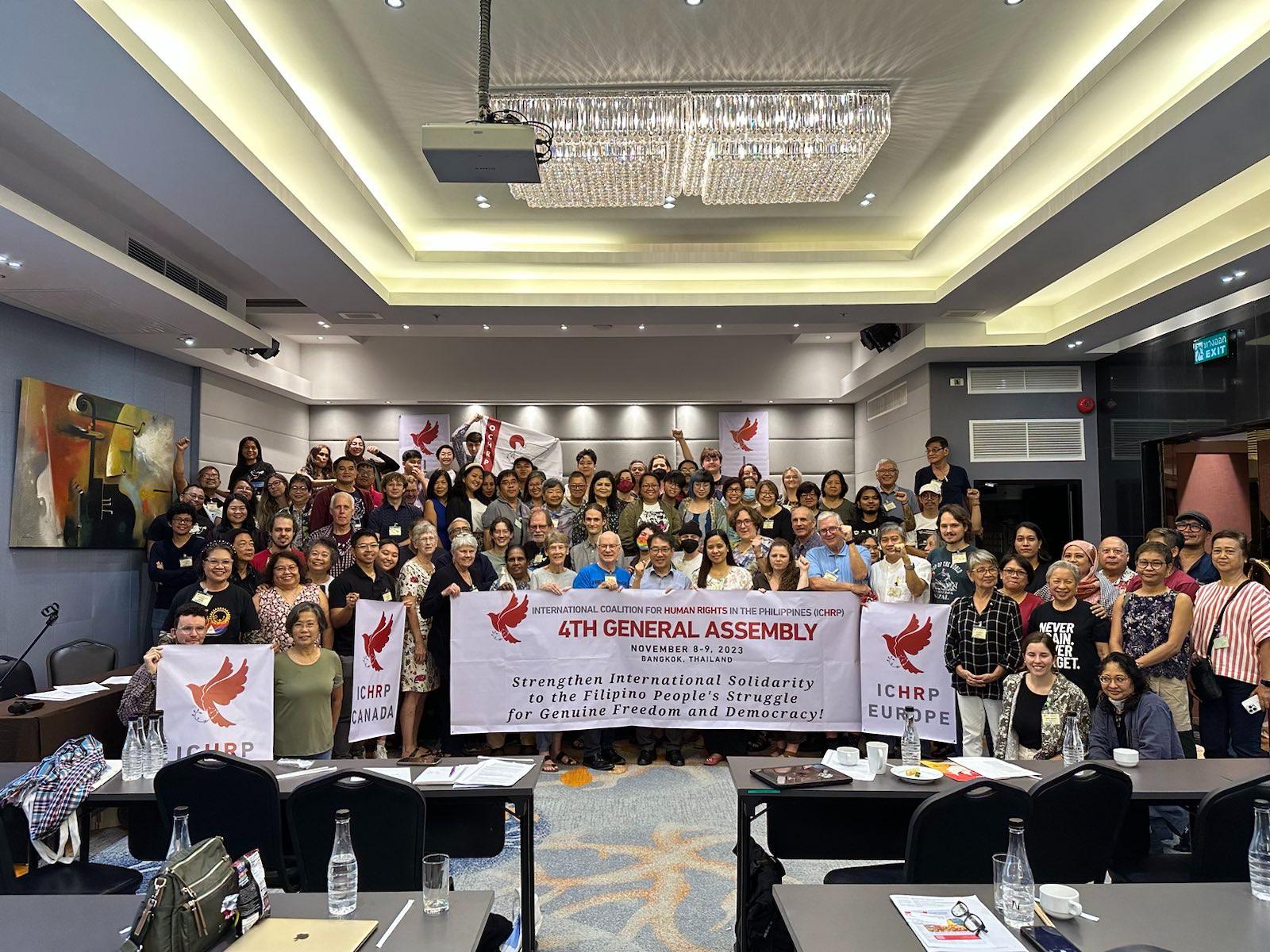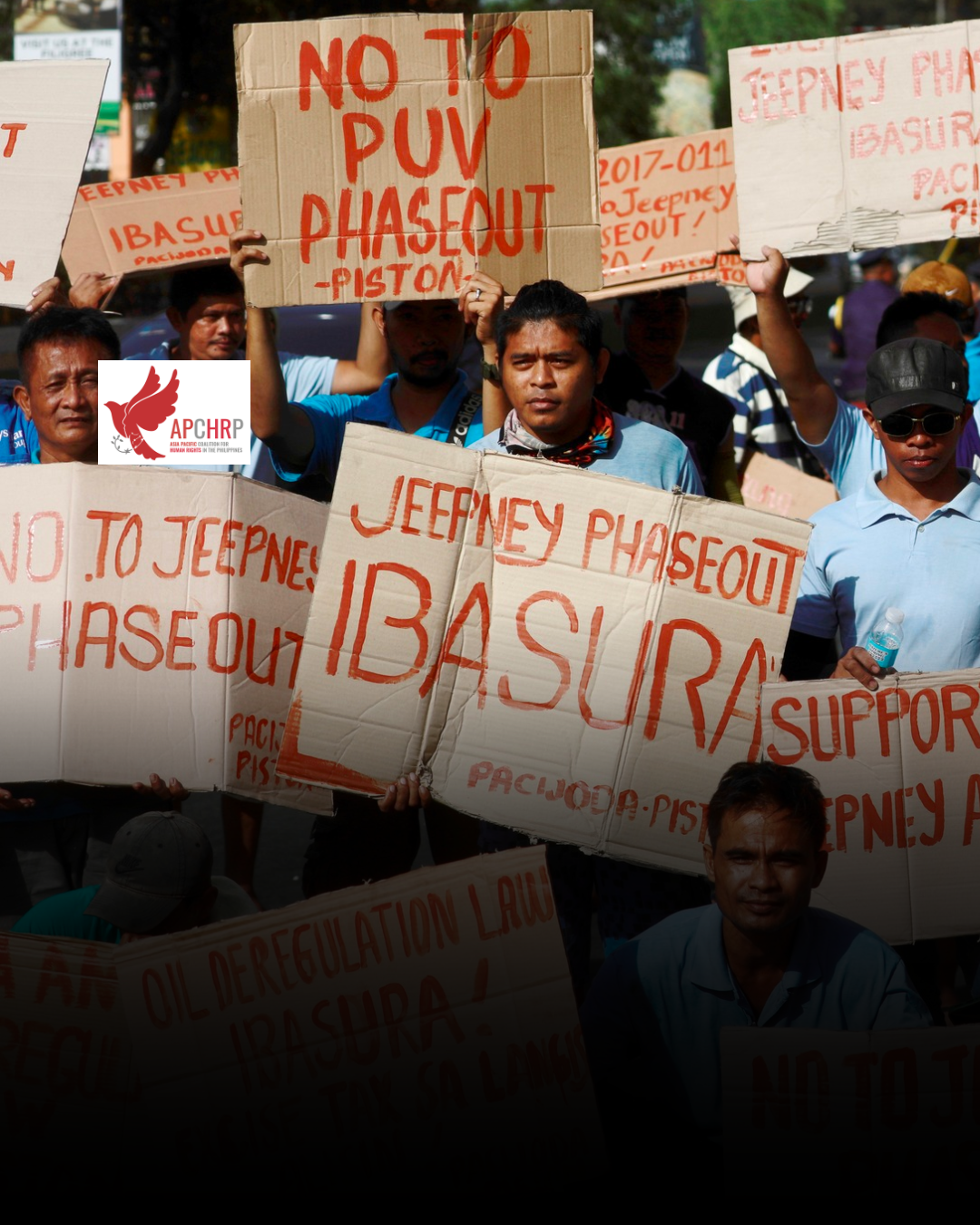APCHRP: Stand in solidarity with Filipino peasants against landlessness and heightening militarization of rural communities!
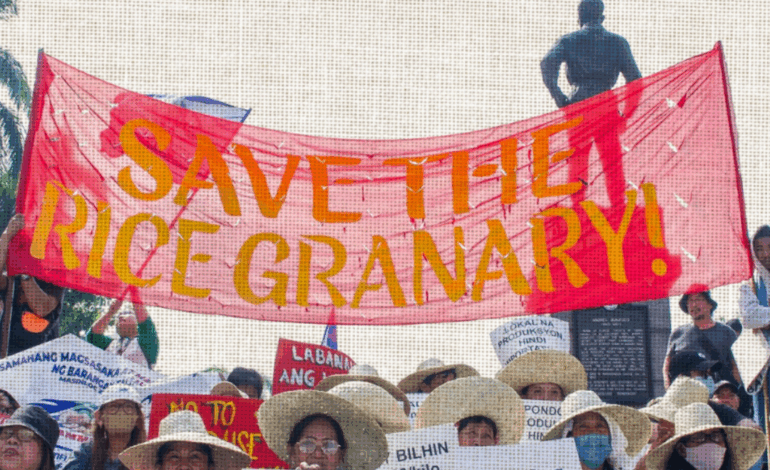
The Asia Pacific Coalition for Human Rights in the Philippines stands in solidarity with Filipino peasants and their families as we commemorate Peasants’ Month this October. Despite being the backbone of the Philippine economy, rural peasants remain the most disadvantaged sector in society. Worse, they also face unwarranted and brutal repression from the state – driven by the U.S.-led anti-insurgency program that is increasingly militarizing their communities and displacing them from their homes to the advantage of the ruling elite.
Landlessness remains a major problem among Filipino peasants today, as many are forced to enter into feudal relationships with exploitative landlords to earn their livelihood. Today, over 163,000 peasant households farm less than one hectare each. The failure of the Philippine government to implement genuine agrarian reform is to blame for these issues, which has – in turn – given rise to flow-on effects such as land monopolies, usury, high land rent and low wages for farmworkers. Making matters worse, Filipino farmers have also been at the mercy of neoliberal policies implemented by the state such as the Rice Tariffication Law (RTL), which further disadvantages our rice farmers, and the recent reform allowing foreigners to lease agricultural lands in the Philippines by the regime of President Ferdinand “Bongbong” Marcos Jr. The RTL enables the unbridled importation of rice from foreign countries to cover up successive Philippine governments’ failure to improve domestic rice production. Under this policy, Filipino farmers who already face serious challenges in their production are forced to compete with rice producers from countries like Japan or Thailand, wherein their respective rice farmers are supported by their respective governments. The move to further liberalize foreign land leases to include agricultural lands, will only exacerbate the issue of food insecurity by allowing large multinational corporations to displace small-scale farmers from their lands.
While most Filipinos grapple with the heavy impacts of natural calamities – particularly typhoons – the damage this causes peasants is much greater. The lack of government support for farmers affected by typhoons make them even more vulnerable to abject poverty when these natural disasters hit. The damage is further emphasized by the poor farming infrastructure in the country, caused by public funds often being siphoned away by bureaucratic corruption. The ongoing corruption scandal involving anomalous flood control projects is a blight on Filipino farmers, as many of them toil on lands often inundated by massive flooding. There have also been anomalies unraveled in government-built ‘farm-to-market roads’, which is intended to help farmers transport their produce to the markets. Successive Philippine governments have also failed to adequately support farmers whose crops have been decimated by natural calamities. For example, amid the throng of typhoons that hit the country this year during the habagat (south west monsoon) season, the Marcos administration has offered disaster-stricken farmers a measly ₱7,000 sum as compensation for their lost produce. The heartless corruption and out-of-touch policy-making by our public officials are what push Filipino peasants into destitution.
Putting aside government corruption and the lack of support for our farmers, Filipino peasants also face increasing militarization in their communities. Under the guise of “counter-insurgency”, the Philippine military has deeply militarized rural communities – setting up unjustified curfews and checkpoints that hinder the free movement of people. Rural Filipino communities also suffer from violations of international humanitarian law (IHL), as their lands are hit by indiscriminate aerial bombing or strafing, and shelling by the military’s artillery units, as part of so-called anti-insurgency operations. Such actions not only damage their crops, but also induce stress and anxiety among rural communities that ultimately force communities out of these areas. This is a strategic move by the ruling elites, who are keen to see these small-scale farmers sell off their lands at a pittance to let large corporations take over. Peasants’ advocates have also reported rising land-grabbing, with large corporations owned by powerful families such as the Villars and Aboitizes seizing hundreds of hectares of agricultural land. At the TARI Estate in Hacienda Luisita for example, around 200 hectares have been taken over by the Aboitiz corporation, whose CEO sits on the Marcos administration’s Private Sector Advisory Council (PSAC). In Candoni, the HAPI-Consunji corporation plans to expand its oil palm plantation from 6,652 hectares to 12,000 hectares over five years which requires more land from smaller farmers. While these projects are framed as progress, they continue to displace farmers and erode agricultural communities.
Our call for solidarity with Filipino peasants should not remain performative. Rather, the APCHRP calls on the Marcos Jr. regime to implement concrete steps to improve the conditions of Filipino peasants and rural communities – first of all, by demilitarizing their communities. We also demand the repeal of neoliberal policies such as the Rice Tariffication Law (RTL) and the opening of agricultural land to foreign control via 99-year leases; and to finally implement genuine agrarian reform. When Filipino peasants succeed, the rest of Philippine society benefits from food security and the lower cost of food. The Marcos Jr. regime has a choice to make on whether to serve the Filipino people – as he was elected to do – or to protect the interests of the ruling elites. Only a pro-people government can solve our agricultural woes and improve the condition of Filipino farmers; not one that serves oligarchs and big businesses.
